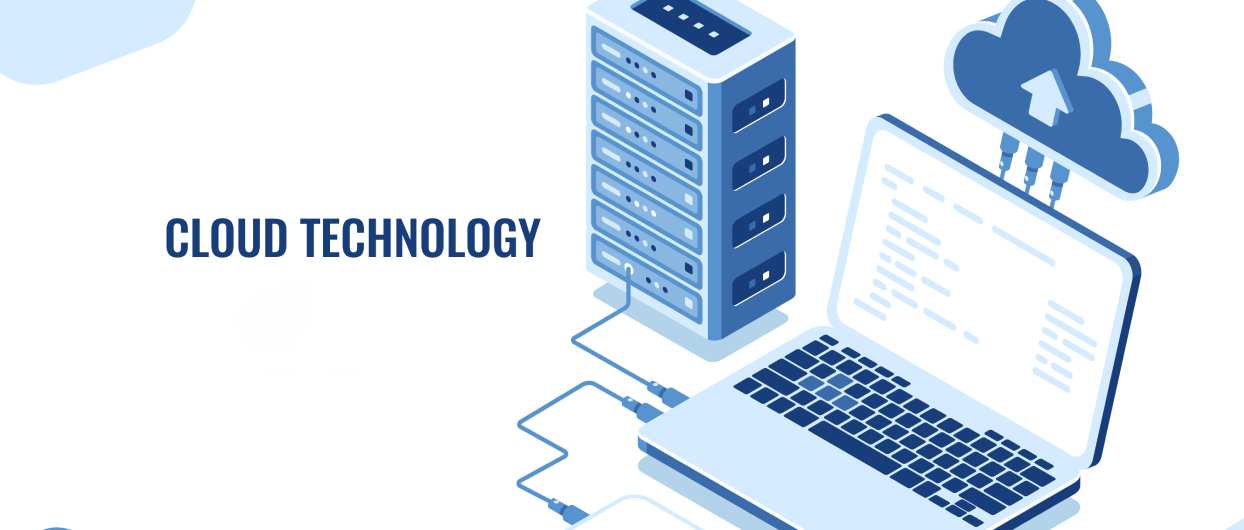
So you’ve heard of Hybrid Cloud Solutions, but today, we’re going to talk about cloud hosting versus VPS hosting.
Both cloud hosting and VPS hosting are popular data storage plans, though they differ in that VPS hosting stores your data in a set amount of space/resources on a single server whereas cloud hosting stores your data on a network of multiple servers
Let’s jump into what each hosting solution looks like and the pros and cons of each.
VPS Hosting (Virtual Private Servers)
What it is:
VPS hosting is one level above shared hosting and yet one level below dedicated hosting. With VPS hosting, you have your own space on a physical server and can create your own customizations (similar to dedicated server settings).
However, other organizations may also live on the server (similar to shared hosting). This is because smaller businesses don’t need the power of the full server.
This is a great option if you have under 2,000 visitors to your website as you don’t yet require a full dedicated server. Though, you may want more control over settings than a shared hosting option.
Pros
Control:
With a VPS hosting solution, You can set the settings however you like. With VPS hosting you can customize your own settings, add software, and more. Think of VPS hosting like an Uber or taxi.
While in an Uber or taxi, you can customize your route and even make requests regarding the temperature and music. You aren’t required to buy the car (server) upfront, but you can still customize the ride as you wish.
Security:
VPS hosting offers amazing security. In fact, it’s second only to dedicated hosting because you are guaranteed your own space on the server. This means that even if another website on the server is attacked, yours won’t be affected.
That said, it’s important that you accurately install and configure security protection. Without a reliable security installation, your data will be vulnerable.
Cons
Scalability:
Unfortunately, when you purchase a monthly plan with a VPS hosting company, you are allotted a set amount of resources.
Therefore, if you scale beyond the allotted resources and drive more traffic to your website than the resources can handle, it could crash altogether.
Uptime:
Similar to the scalability issues, VPS hosting has limited resources meaning that high traffic influxes could crash your website. While it isn’t as risky as say, shared hosting, VPS hosting can still be affected by other websites on the server.
Even if it doesn’t crash your website, it can affect page speed which will, in turn, affect your SEO and customer experience.
Cloud Hosting
What it is:
Cloud hosting stores data on multiple servers that are inner connected. Therefore, even if one server goes down, there are other servers that will keep your data secure.
Rather than keeping “all your eggs in one basket” the servers store redundant data. This makes it an popular option for high traffic websites that require reliable uptime. Businesses typically pay a hosting company a monthly fee and only pay for the resources used, eliminating server purchase costs.
Also read: Top 10 Trending Technologies You should know about it for Future Days
Pros
Scalability:
Cloud hosting relies on a network of servers that are inner connected giving you virtually limitless potential to scale. In addition, you only pay for the resources you use with this model, making an efficient option for fast-growing companies.
This can be fixed with a simple upgrade, though a crash could be detrimental to your business.
Uptime:
Cloud hosting is known for having very good uptime. Even if you have a huge traffic influx, whether it’s a huge promotion that was successful or being featured on CNN, your website will keep running strong.
This is because cloud hosting has redundant data files on multiple servers. So even if one crashes, its no big deal.
Cons
Control:
Public cloud hosting does offer some customization, though not to the extent of a VPS hosting solution. It’s more like a network of city buses in that you can’t customize the destination (or if we’re talking about hosting, installing software, and server settings).
At the end of the day you can still get where you want to go. The benefit of the city bus is that even if it breaks, there are other buses to replace it creating an uninterrupted service.
If customization is an issue for your company, you can still use cloud hosting, though ask for a private cloud solution. This means that you will share little to no resources with other companies and therefore have full customization options.
At-Risk to Cyber Attacks:
Overall, cloud hosting is pretty secure assuming you invest in a quality hosting company. However, because the cloud is entirely web-based, cloud hosting is at risk of DDoS, data breaches, and malware.
In addition, if you’re using multi-tenant cloud hosting, you are at risk of another site becoming overloaded and crashing the network. For this reason, be sure to implement advanced security protocols like VM isolation, as this will protect your website from attacks.
Pricing – a Pro or a Con?
Pricing was neither a pro nor a con for either of these. Mainly due to the fact that they differ depending on the business.
Cloud hosting is paid month to month and you only pay for the resources that you use. VPS hosting is also a monthly fee. Though it is a set plan that you purchase with set resources ahead of time.
However, you can’t scale with VPS hosting simply because each plan offers limited resources.
Therefore, a growing startup that requires flexibility may find a cloud hosting service cheaper. While a VPS server may be cheaper if you are a boutique online shop.
Also read: Walmart Money Card Review: Good Or Bad?
Which Should I Choose?
Let’s say you’re a fast-growing venture-backed startup that needs a reliable system that can fluctuate with your needs. Go with a cloud hosting solution.
This also goes for large websites that generate a lot of traffic every month. Even a 10-20 percent fluctuation in traffic could be in the hundreds or thousands.
If you just opened a mom and pop shop or have an online boutique shop, a VPS hosting solution may be enough. This also requires less technical experience making it a popular option.
And lastly, if you’re currently managing cybersecurity and not sure what to do with COVID-19 and the increase in cyber attacks, be sure to keep yourself up-to-date on the significance and impact of COVID-19 on cybersecurity.
Top 10 News
-
01
[10 BEST] AI Influencer Generator Apps Trending Right Now
Monday March 17, 2025
-
02
The 10 Best Companies Providing Electric Fencing For Busines...
Tuesday March 11, 2025
-
03
Top 10 Social Security Fairness Act Benefits In 2025
Wednesday March 5, 2025
-
04
Top 10 AI Infrastructure Companies In The World
Tuesday February 11, 2025
-
05
What Are Top 10 Blood Thinners To Minimize Heart Disease?
Wednesday January 22, 2025
-
06
10 Top-Rated AI Hugging Video Generator (Turn Images Into Ki...
Monday December 23, 2024
-
07
10 Top-Rated Face Swap AI Tools (Swap Photo & Video Ins...
Friday December 20, 2024
-
08
10 Exciting iPhone 16 Features You Can Try Right Now
Tuesday November 19, 2024
-
09
10 Best Anatomy Apps For Physiologist Beginners
Tuesday November 12, 2024
-
10
Top 10 Websites And Apps Like Thumbtack
Tuesday November 5, 2024







